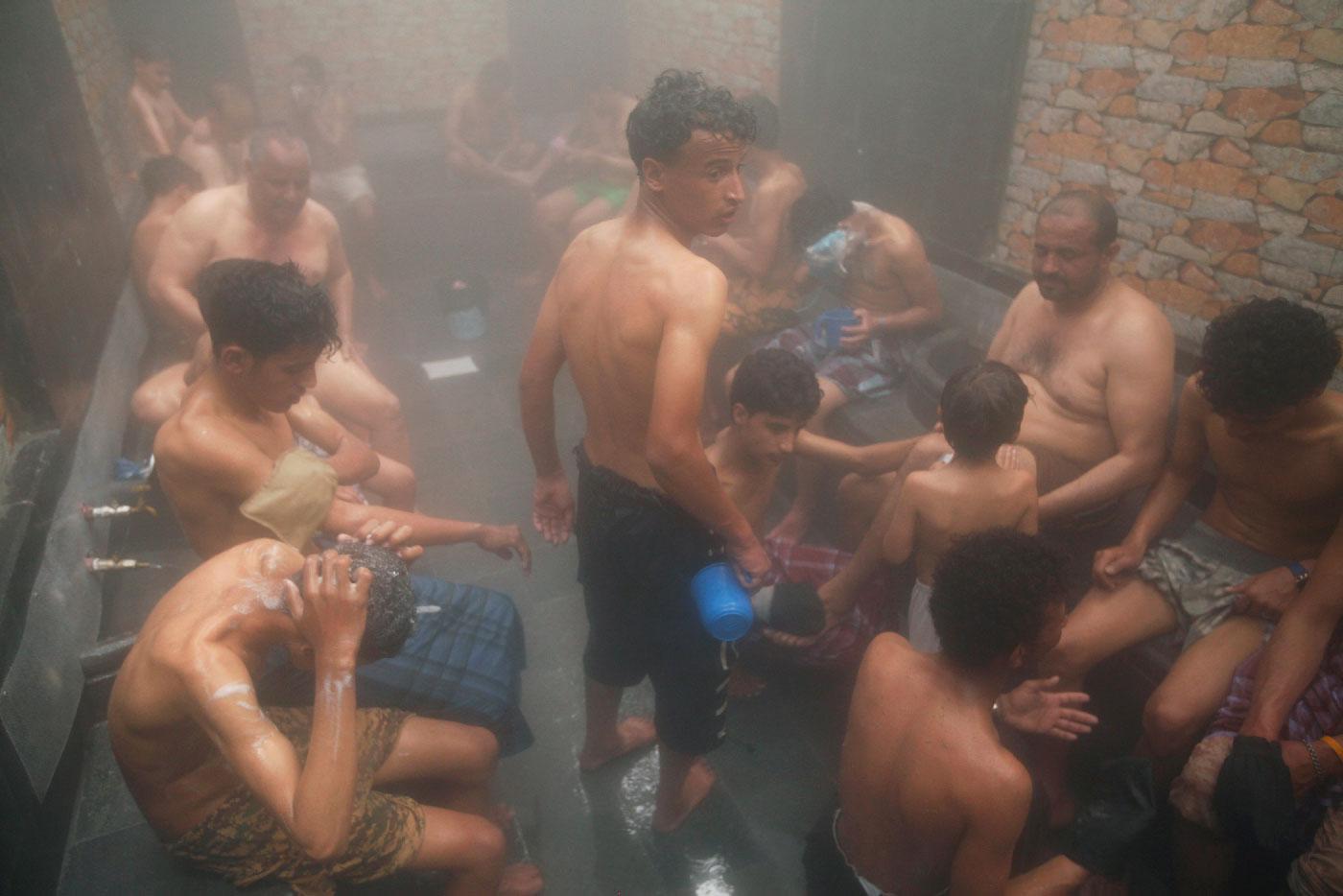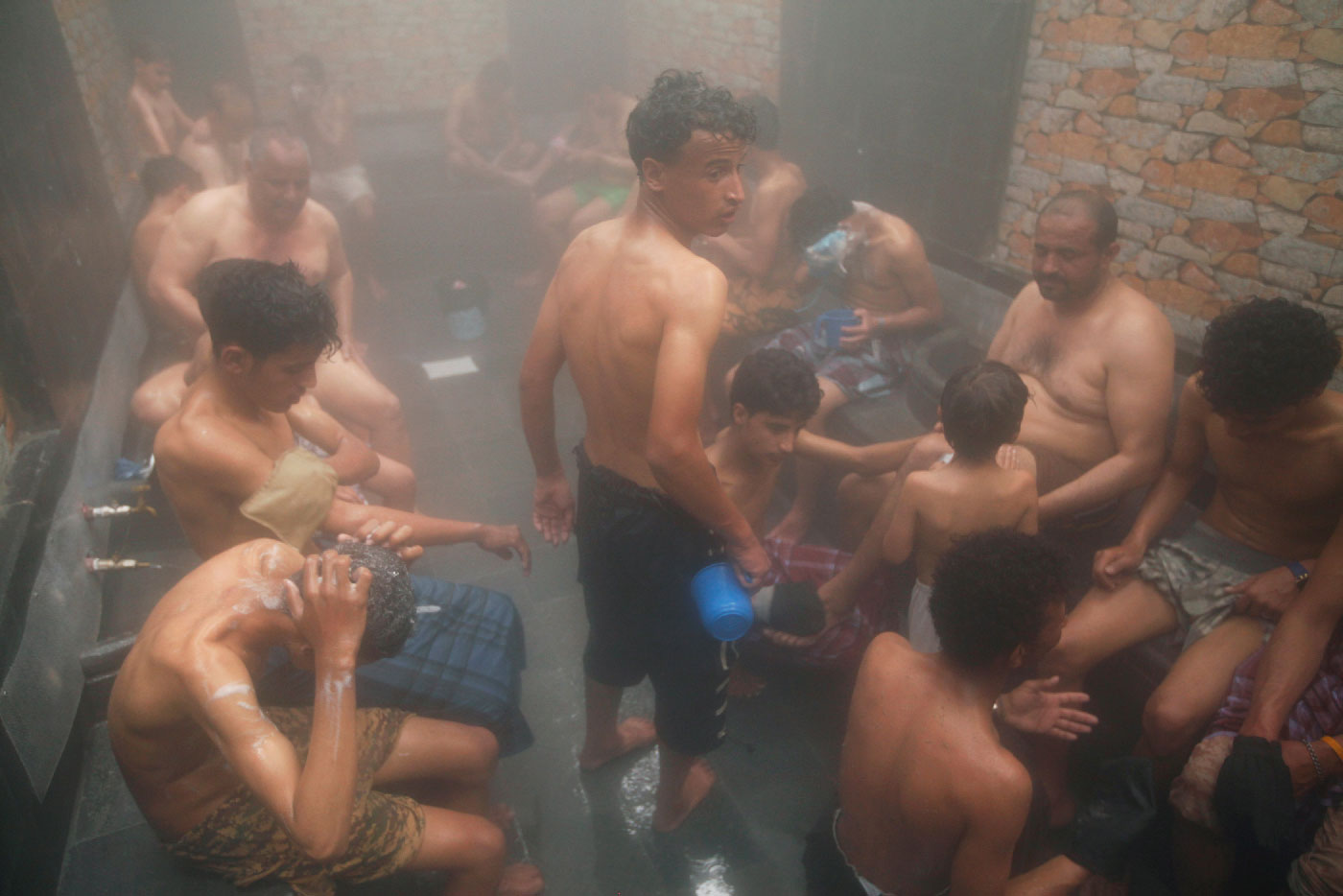Sanaa bathhouse a source of hot water for Yemenis
SANAA - Yemenis go to the Fakhama Bathhouse in the capital Sanaa to relax with steam, scrubs and massages.
They also go in search of a rare commodity - hot and flowing water - as almost four years of war have left homes across Yemen without reliable power and water supplies.
"After the stress of work and the burdens of daily conditions here ... you can put your worries behind you," said 35-year-old aid worker Wahib Abdullah, bare-chested and sweating in the steam of a black-stone chamber.
Sanaa, seized by Houthi rebels in 2014, receives no state electricity so residents depend on solar water heaters and private generators. Pipes flow only about once a month, leaving houses dependent on expensive water trucks to fill tanks.
Customers at Fakhama and other traditional bathhouses around the city crave the comforts they cannot enjoy at home.
"For a nominal fee of 500 riyals (around $1) he gets clean, massaged and leaves here feeling content," Ibrahim Yahya Habash, the 27-year-old manager of Fakhama, said of his clientele at the newly-built business which opened in January.
Even before the current conflict, Yemen was one of the poorest Arab countries and only half the population had access to often unreliable electricity, according to the World Bank.
It is also one of the world's most water-scarce countries.
With fuel shortages plaguing Yemen too, Fakhama has both diesel and wood burning heaters. "Working in Yemen is risky. Whoever starts, succeeds only with God's blessing," said 51-year-old bathhouse owner Ahmed Saleh al-Qahali.
Yemen's conflict pits the Iran-aligned Houthis against a Saudi-backed coalition trying to restore an internationally-recognised government. The war has collapsed the economy and brought millions to the brink of starvation.
Severe inflation has eroded people's ability to buy food and the non-payment of government worker salaries has left many households without incomes.
The 60 jobs at Fakhama are a help for the local economy.
"I go for my health ... This is a custom, a tradition here in Sanaa. It is good for your mind," said Akram Abdullah, a 32-year-old private sector worker relaxing in the bathhouse.


